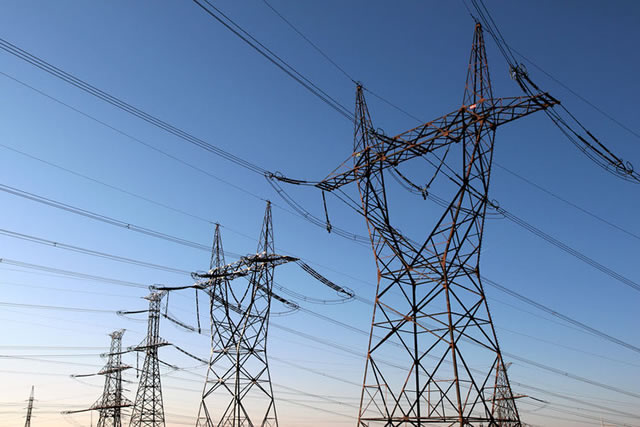
Golden Sibanda Senior Business Reporter
South Africa’s power utility Eskom has extended the agreement to export electricity to Zimbabwe for as yet undefined period, but wants a bank guarantee to back the new deal.
This comes as the R500 million guarantee Government had extended for imports from Eskom had been exceeded.
Zimbabwe’s power utility imports an average of $11 million worth of electricity per month from Eskom for the supply of between 100 megawatts and 300MW, which is supplied on a non-firm contract basis.
The new power supply agreement will see Eskom continuing to export more or less the same amount of power to Zimbabwe as before provided South Africa is not facing critical deficit.
Industry sources said ZESA owes Eskom up to $60 million, but has recently made significant strides towards clearing a portion of the debt amidst the seasonal foreign currency deficit.
Energy and Power Development Minister Samuel Undenge said the agreement signed with Eskom yesterday would allow for continuation of exports to Zimbabwe to alleviate its shortage.
“We want a situation where we will continue without load shedding. (Due to the imports)
you will note that we have not had load shedding since December 2015 and my mandate as Energy minister is to ensure steady supply of power.
“I do not want load shedding to return . . . but with continued support from Eskom we will ensure that we keep the country supplied with (adequate) power,” Minister Undenge said.
Minister Undenge said ZESA would strive to honour an agreed payment model and had already reduced what it owes to Eskom.
Apart from Eskom, ZESA also imports power from Hydro Electro De Mocambique of Mozambique, where it has a firm power supply agreement for 50MW and a non-firm agreement for another 50MW with private utility, Lusemfwa of Zambia.
South Africa’s ambassador to Zimbabwe Mphakama Mbete represented his Government during the signing of the MoU while acting chief executive Koko Matshela signed for Eskom.
Minister Undenge stood for the Government while Zesa CEO Josh Chifamba signed on behalf of the power utility. Energy and Power Development secretary Patson Mbiriri also attended the event along other Zesa and Government officials.
Ambassador Mbete said the framework agreement would lead to stronger and more extensive co-operation between Zimbabwe and South Africa in the area of energy trade.
“As you know energy is an economic enabler and this is the approach both countries are taking. We hope that after this (MoU) there will be stronger and consolidated bilateral energy co-operation, which will strengthen our economies, not only on a short-term basis, but on a long-term basis,” he said.
Zimbabwe imports power from the region to augment local production, which averages 1 000MW against demand at peak periods of 1 400MW.
Zimbabwe is working on a number of public and private sector projects to increase generation.
These include expansion of the 750MW Kariba South by 300MW and extension of 920MW Hwange Power Station by 600MW. Hwange is producing slightly over half its capacity as the power plant has far outlived its design lifespan.
